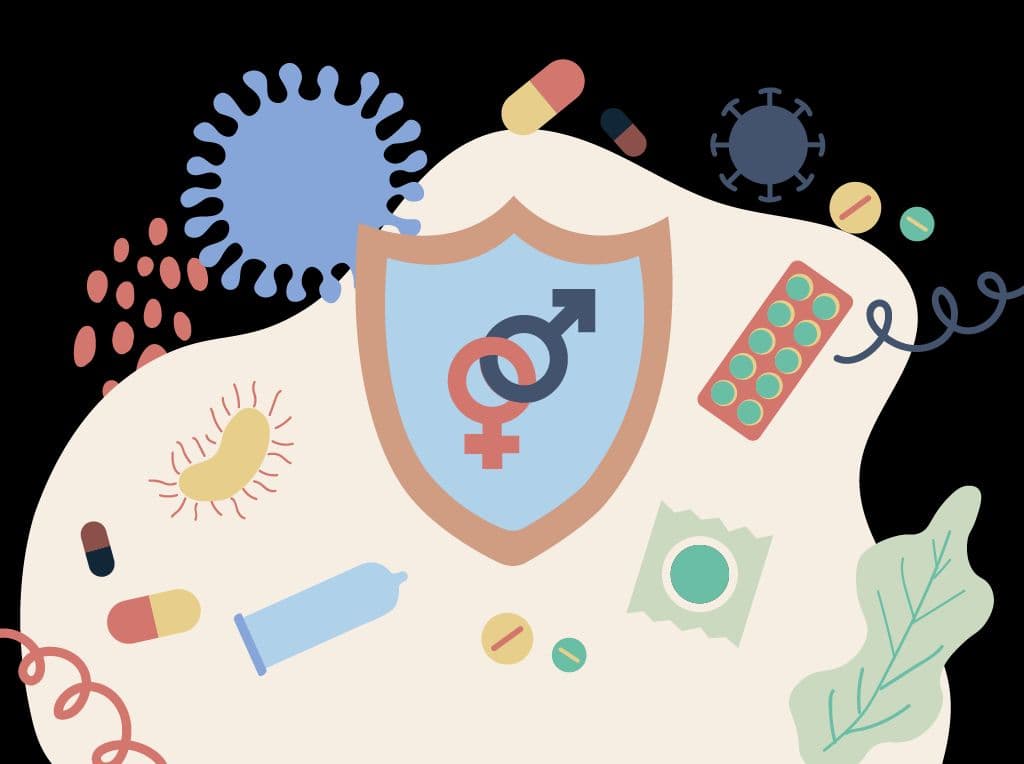Generally, married or unmarried is a question posed by check boxes adorning various official applications. Generally, married or unmarried is just a mundane question. However, there is one place this question isn’t always as innocent as it sounds. Just ask the women who have been to a gynecologist; there, this question is often served with a portion of presumption or a dollop of judgment.
As Indians, we learn to live with unsolicited judgments from strangers: from intrusive aunties to bystanders in the street. But a gynecologist’s office as a source of moral policing might be more unwelcome than others. Consequently, a visit to the gynecologist for many is uncomfortable at best and dread inducing at worst. The discomfited group is steeply skewed towards single women who are subjected to unwarranted judgments and patronizing diagnoses by the doctors. Problems like PCOS and severe menstrual cramps are often dismissed as something that will miraculously be solved post marriage, marriage being a thinly veiled analogy for sexual activity. Many doctor-patient interactions are rife with allusions in order to avoid discussing sex and related topics directly; honesty is often a casualty in the attempt to keep visits with unmarried women PG 13.
An Instagram survey by women’s community account @browngirlgazin asking women to share their experiences with gynecologists in India led to at least 10 responses of women saying they were too scared to go to one; many others shared horror stories of being subjected to aggressive moral policing on revealing sexual activity prior to marriage. Twitter and Facebook abound with women sharing stories of a less than ideal visit. Perhaps it is not that surprising then, that a survey of young and unmarried women in Delhi revealed that less than 1% of these women received information about sexual and reproductive health and rights from gynecologists.
Now, more than ever before, we need gynecologists that will make patients feel comfortable. With the absence of quality Comprehensive Sex Education (CSE) in the country coupled with a generation of sexually active, young and unmarried population, we need doctors who will address any questions women have about their bodies without shaming them for their lifestyle choices. Reports based on evaluation of Sexual and Reproductive Health and Rights (SRHR) in India by leading organizations such as UN, Arrow, Sama resource group and the YP foundation highlight the abysmal condition of SRHR awareness among the youth and underscore the dearth and need for government action in this area. The limited measures on a national scale such as the establishment of Adolescent Friendly Health Clinics (AFHC) and Adolescence Education Programme (AEP) remain largely ineffective. A 2016 youth led audit of sexual and reproductive health services underlines the deep discord between the intention and efficacy of the AFHCs; while generally functional, these clinics are far and few and enjoy limited visibility. For the young demographic, the supply of SRHR and CSE is far surpassed by the demand.
Women have responded to unmet needs by adapting. Some grow thick skins, some undertake their own judgments to give themselves the best chance at having a stress free visit to the lady-doctor. Sneha (25, engineer)(name changed on request) recalls that she “chose to go to this one only because she had short curly hair and wore a sleeveless blouse in her photo. Seemed more open minded”. Girls schedule appointments with doctors based far from their localities to avoid prying eyes. Perhaps this is what exemplifies the need for ‘The Crowdsourced List of Gynecologists We Trust in India’. Compiled by women across India, the spreadsheet can be used to find a surprisingly extensive set of information about trusted gynecologists in 40 cities, ranging from pocket friendliness to queer friendliness. However, such measures remain limited in reach and impact; not many women are aware that such a list exists and options of trustworthy doctors in 2nd tier cities like Bhopal and Chandigarh is restricted to only a handful.
Most women recognize that this is a generational and cultural issue. India as a country is still reticent in addressing sexuality and sexual problems and the issue is compounded in case of female sexuality. Parents are known for diligently avoiding any sex talk and the subject remains taboo for many households. Often, the attitude of doctors is just an extension of this social policy. Dr Oshin Behl says “since reproduction is still not openly discussed in non-urban areas, patients might even get offended if you ask them if they’re sexually active. So it’s a catch 22 situation for doctors”. Part of the problem is also legal. An amendment to the POCSO (Protection of Children from Sexual Offences Act) criminalizes and requires medical practitioners to report sexual activity by any person under the age of 18 (the minimum age for marriage). In contrast, marital rape over the age of 15 is not a criminal offense under the IPC. In a country where girls are married young, such laws ideologically yoke acceptable sexual activity and consent to marriage. Extricating legislation and medical practice from the shackles of social morality is imperative in providing women with universal access to quality reproductive health care.
Attitude shifts are often time bound. But can we afford to wait? For M. Chandra (21, student), at 14 pain became a companion for almost 10 days every month starting from a week before her periods. When the pain became debilitating, she demanded a thorough internal investigation. To the gynecologist, her hymen was a part of the equation too important to risk through any internal medical examinations. Her consent for the procedure was not enough to risk an unmarried woman’s “virginity” (it was naturally assumed that as an unmarried woman, she was a virgin). Her experiences have involved some doctors even refusing to examine her without a guardian present. It took nearly 6 years of asserting her medical rights and switching through a long line of doctors to find one that valued her medical conditions over her relationship status. Having understood the necessity of demanding what she needs, she says “I have to speak for myself and I will. But should every woman spend half a decade learning the lesson?”
Health care is a basic right. The FOGSI’s (Federation of Obstetric and Gynaecological Societies of India) code of conduct includes a clause that prohibits discrimination based on marital status and sexual orientation. Yet, the stories of so many women clearly shows that this is merely lip service. While time may slowly improve attitudes, it is my point of view that even a single woman suffering to spare someone else’s moral reservations is one too many. We need doctors we can trust implicitly, and that day right now is not as close as it should be.
ProactiveForHer is a digital clinic for women, offering accessible, personalized, and confidential health-care solutions. We offer products and services for out-patient health concerns of Indian women, across their lifetime - from puberty to pregnancy to menopause. To know more on the sexual and reproductive health of women, visit https://www.proactiveforher.com/

